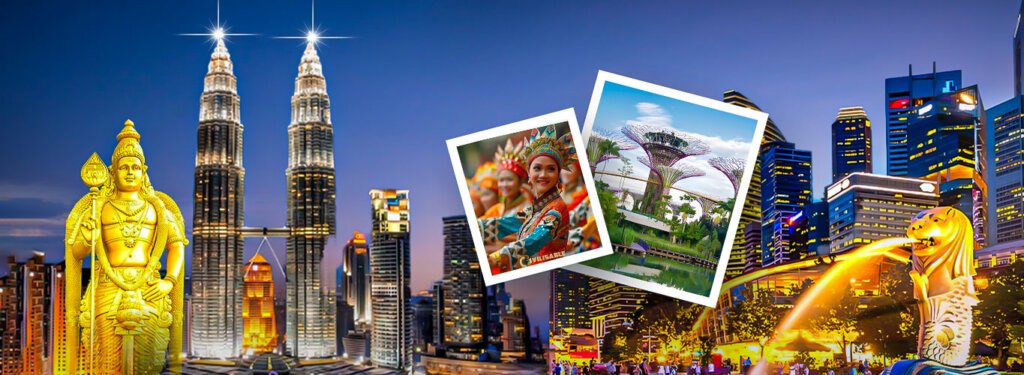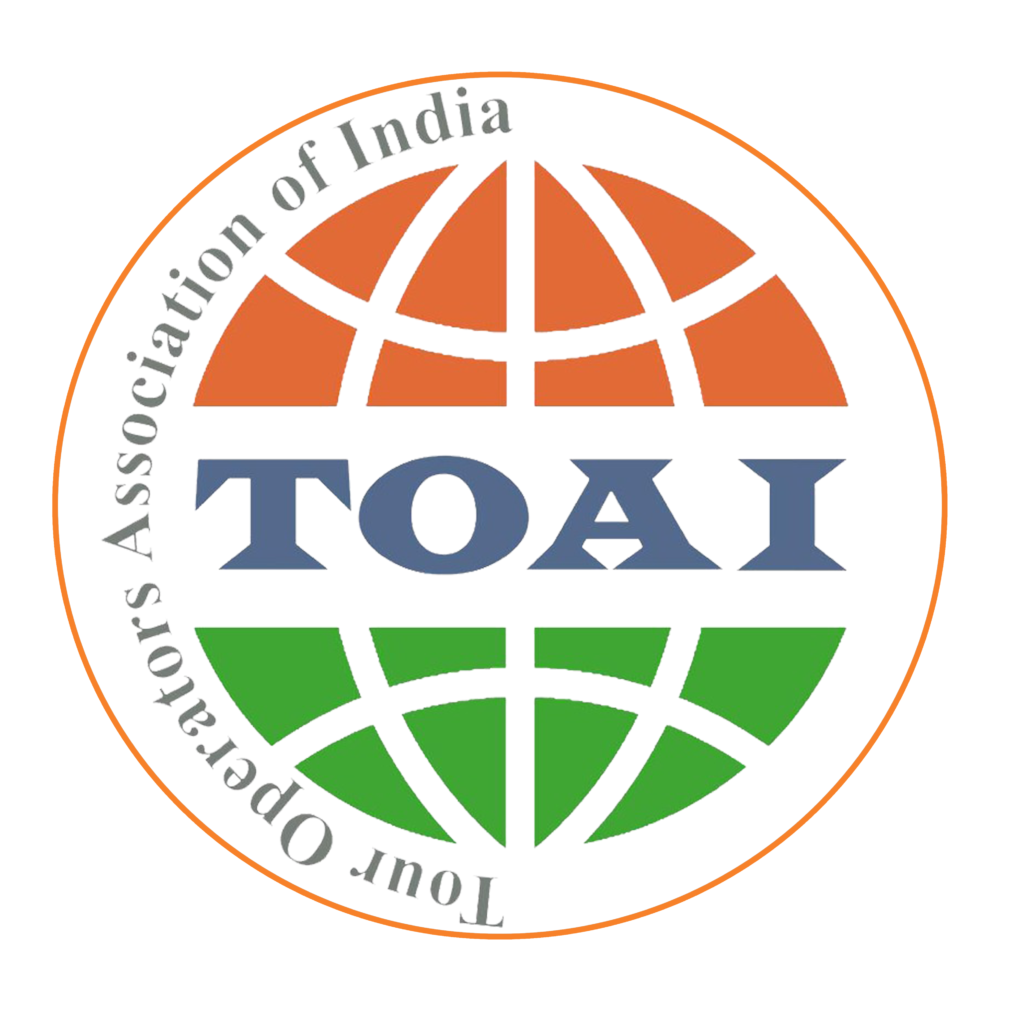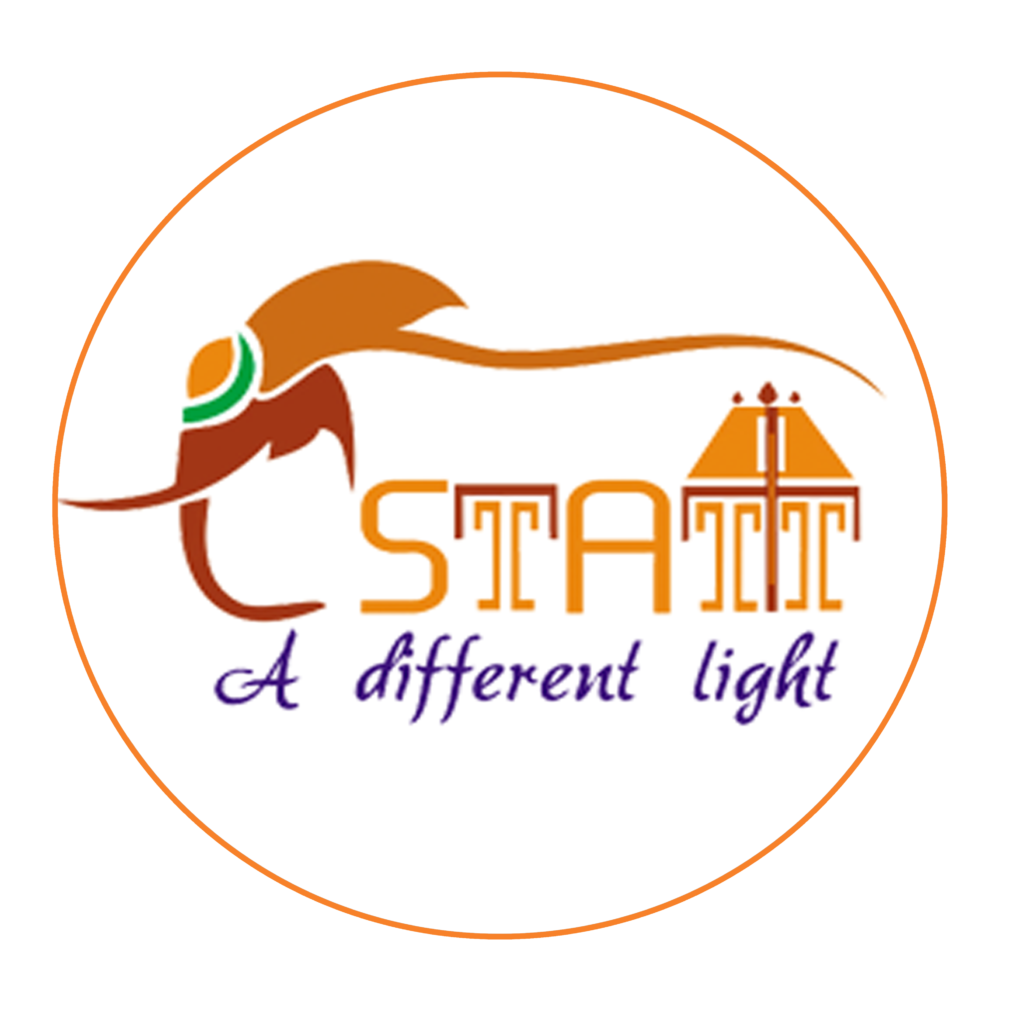
South India's No. 1 Travel Agency ✨
💱 Currency
Singapore: Singapore Dollar (SGD)
Malaysia: Malaysian Ringgit (MYR)
🗣️ Languages
Singapore: English
Malaysia: Malay (official)
🌤️ Climate
24°C – 34°C
📅 Best Season
February – April
🛡 Must-Know Travel Tips for Visiting Singapore & Malaysia
- 🏧 ATMs are widely available in both countries — ensure your international cards are activated for overseas use.
- 💳 Credit and debit cards are accepted almost everywhere in urban areas, malls, and restaurants. However, small street vendors and hawker stalls in both countries may prefer cash.
- 🏦 Bank hours are typically Monday to Friday, 9:30 AM to 4:00 PM. Some bank branches in shopping malls may open on weekends.
- 🍷 Legal drinking age is 18 in Malaysia and 21 in Singapore — ID checks are common in Singapore, especially at clubs and bars.
- 🤝 Cultural respect is important — dress modestly when visiting religious sites like mosques and temples. Tipping is not expected but appreciated in Malaysia; in Singapore, a service charge is usually included in bills.
- 💰 Singapore is modern and efficient but more expensive than Malaysia. Malaysia offers great value for money in food, accommodation, and transportation.
What Is Singapore Malaysia Famous For? – About Singapore Malaysia Explained
Singapore and Malaysia are two of Southeast Asia’s most dynamic and contrasting destinations, each offering a unique blend of culture, modernity, and natural beauty. While Singapore is famed for its ultra-modern skyline, cleanliness, and technological advancement, Malaysia is known for its multicultural heritage, tropical landscapes, and colonial-era charm. Singapore is internationally celebrated for landmarks like Marina Bay Sands, the futuristic Gardens by the Bay, and the bustling Orchard Road shopping district. Many travelers choose Singapore Malaysia tour packages to experience both countries in a single trip, combining the luxury of cityscapes with the serenity of beaches and rainforests. The city-state is also known for its strict laws, high standards of living, and world-class public transport. Malaysia, on the other hand, offers a diverse mix of experiences—from the cosmopolitan energy of Kuala Lumpur, with its iconic Petronas Twin Towers, to the colonial charm of Penang and the tropical rainforests of Borneo. It’s a country where you can explore vibrant street food scenes, tranquil beaches in Langkawi, ancient temples, and indigenous cultures. Nature lovers will appreciate Cameron Highlands, Taman Negara National Park, and the marine biodiversity around Tioman Island. Together, Singapore and Malaysia present a dual destination experience—modern and traditional, urban and natural—perfect for travelers seeking variety, accessibility, and cultural richness within a single journey.
Singapore Malaysia Tour Packages
Most Chosen Singapore Malaysia Plans by Our Happy Customers
How Are India and Singapore Malaysia Connected? – Cultural & Historical Ties
India shares deep-rooted connections with both Singapore and Malaysia that go beyond travel and trade. Historically, large waves of Indian migration to Southeast Asia occurred during British colonial rule, when Indian laborers, traders, and administrators moved to work in plantations, railways, and civil services. As a result, both countries today have significant Indian-origin populations who continue to preserve and celebrate their heritage. In Singapore, the Indian community forms about 9% of the population. Little India is a vibrant cultural enclave where temples, spice shops, and festivals like Deepavali reflect the Indian spirit. In Malaysia, especially in states like Penang, Selangor, and Kuala Lumpur, Indian influence is even more prominent. Tamil is recognized as one of the major languages in education and media, and major Hindu festivals such as Thaipusam are celebrated on a grand scale, particularly at the Batu Caves. Modern ties between India and these two nations are equally strong. Trade, technology, education, and tourism continue to grow steadily. Both Singapore and Malaysia are favorite destinations for Indian students and professionals, and frequent air connectivity has further strengthened people-to-people relations. Culturally, the connection is visible in shared cuisine (like roti canai and dosa), religious practices, and cross-border family ties. These ties create a sense of familiarity for Indian travelers, making both destinations feel warm, welcoming, and culturally resonant.
Interesting Things to Know About Singapore Malaysia Before You Go
Before you pack your bags for Singapore and Malaysia, here are a few fascinating and useful things to know that will enrich your travel experience.
Singapore is one of the most efficient and safest countries in the world. Despite its small size, Singapore offers a world of experiences, from night safaris and rooftop bars to immersive museums and botanical gardens. The weather is tropical—hot and humid year-round—so light clothing, sunscreen, and hydration are key.
While Kuala Lumpur is urban and fast-paced, places like Melaka, Langkawi, and Sabah offer slower, nature-focused travel. Malaysia is also known for its friendly locals, multi-religious harmony, and food culture, with hawker stalls and night markets serving everything from satay and nasi lemak to banana leaf meals. Both countries are known for their multiethnic diversity, and English is widely spoken, especially in cities and tourist zones, making communication easy for Indian and international visitors. The currencies are different—Singapore uses the Singapore Dollar (SGD), and Malaysia uses the Malaysian Ringgit (MYR)—so be sure to exchange accordingly. Lastly, the cultural etiquette in both places emphasizes politeness, modesty in attire when visiting religious sites, and respect for elders and local customs. Carrying power plug adapters (Type G for Singapore and Type G or M for Malaysia), local SIM cards, and travel apps can also make your journey smoother. With the right preparation, Singapore and Malaysia offer a seamless blend of cultural exploration, urban discovery, and tropical adventure—all within a short flight from India.
What to Know Before Booking a Singapore Malaysia Tour Package
Before booking a Singapore Malaysia tour package, travelers should be aware of a few important points that can enhance the overall experience. First, understand the travel logistics—both countries have excellent transport infrastructure, and many tour packages include cross-border travel by road or flight. However, always check visa requirements: Indian citizens typically need separate e-visas for both Singapore and Malaysia. It’s also wise to choose a package that balances urban exploration with cultural and natural experiences. For example, a good itinerary may include Singapore’s Marina Bay Sands and Sentosa Island, along with Malaysia’s Kuala Lumpur, Genting Highlands, and historical sites in Malacca. Weather is tropical year-round, so light cotton clothing and rain protection are essential. When comparing packages, pay attention to the inclusions—meals, entrance fees, hotel star rating, and airport transfers can vary greatly. Packages may also offer optional add-ons like night safaris, island hopping, or theme park access. Also consider the duration and pace of the trip; some itineraries are tightly packed, which may be tiring for families or senior travelers. Choosing a reliable operator who offers transparent pricing, clear cancellation policies, and multilingual guides can make your journey more comfortable and enjoyable.It’s also helpful to read recent traveler reviews to get firsthand insights into the quality and flexibility of specific tour operators.
Which Are the Best Budget Singapore Malaysia Tour Packages?
For travelers looking to explore both Singapore and Malaysia without overspending, there are several excellent budget-friendly tour packages available. These typically range from 5 to 7 days and include key highlights from both countries while staying in 3-star accommodations and using shared transportation. A common and affordable route includes 2 nights in Singapore followed by 3 nights in Kuala Lumpur or Genting Highlands. Such packages usually cover major attractions like Universal Studios Singapore, Merlion Park, Petronas Towers, Batu Caves, and Sunway Lagoon. Group tours offer the best value, as costs are split and more inclusions—such as meals and local guides—are offered at lower prices.
To keep costs low, opt for packages that use coach transfers between the countries rather than flights, and look for seasonal deals or off-peak discounts. Some packages even include visa assistance, which is a bonus for Indian travelers. Trusted operators often bundle sightseeing passes or offer optional excursions at discounted rates. While budget packages may not include luxury hotels, they still offer clean, comfortable stays in central locations. Many affordable Singapore Malaysia tour packages also provide flexible itineraries that can be customized to suit family, honeymoon, or solo travel preferences.
Quick Facts About Singapore Malaysia – Geography, Wildlife & People
Singapore and Malaysia, though geographically close, offer a contrasting yet complementary travel experience shaped by unique geography, diverse wildlife, and multicultural populations. It is known for its modern skyline, lush green spaces like Gardens by the Bay, and efficient city planning. Malaysia, on the other hand, is divided into Peninsular Malaysia and Malaysian Borneo, offering everything from bustling cities to ancient rainforests and idyllic islands. The wildlife in both countries is rich and varied. Malaysia is especially known for its biodiversity, with national parks like Taman Negara and Borneo’s jungles home to orangutans, hornbills, and rare flora. Singapore has also made great strides in wildlife conservation, with attractions like the Singapore Zoo, River Wonders, and Jurong Bird Park showcasing animals in naturalistic habitats. People in both nations are warm and welcoming, and the societies are a mix of Malay, Chinese, Indian, and indigenous cultures. This diversity is reflected in the languages spoken, festivals celebrated, and especially the cuisine—which is a vibrant fusion of flavors. Together, these countries offer travelers a seamless blend of urban sophistication and natural wonder, perfect for a dynamic and immersive holiday.
Singapore Tour Packages
| High Season | June to August (Summer Holidays), December to February (Festive Season) |
|---|---|
| Iconic Attractions | Marina Bay Sands, Gardens by the Bay, Sentosa Island, Universal Studios Singapore, Merlion Park |
| Popular Activities | SkyPark Views, Night Safari, River Cruise at Clarke Quay, Shopping on Orchard Road, Street Food Tours |
| Visa | Visa-free or e-visa for many countries (check official Singapore Immigration website for updates) |
| National Animal | Lion (symbolic, although not native) |
| National Flower | Vanda Miss Joaquim (Orchid hybrid) |
| Famous Food | Hainanese Chicken Rice, Laksa, Chilli Crab, Satay, Kaya Toast, Ice Kachang |
Malaysia Tour Packages
| High Season | December to February (West Coast – Langkawi, Penang), June to August (East Coast – Perhentian, Redang) |
|---|---|
| Iconic Attractions | Petronas Twin Towers, Batu Caves, Langkawi Beaches, George Town (Penang), Mount Kinabalu |
| Popular Activities | Island Hopping, Cultural Heritage Tours, Wildlife Safari in Borneo, Street Food Exploration, Trekking in Cameron Highlands |
| Visa | Visa-free or e-visa for many countries (check latest entry rules based on nationality) |
| National Animal | Malayan Tiger |
| National Flower | Hibiscus (Bunga Raya) |
| Famous Food | Nasi Lemak, Char Kway Teow, Roti Canai, Satay, Laksa, Teh Tarik |
Top Reasons Why Tourists Love Visiting Singapore Malaysia
Singapore and Malaysia consistently rank among the top travel destinations in Southeast Asia, and for good reason. Tourists from around the world are drawn to this dynamic duo for the sheer diversity of experiences packed within a short geographical distance. Whether it’s sleek urban luxury or rustic cultural charm, Singapore and Malaysia offer a complementary travel experience that is hard to beat. Singapore impresses with its futuristic skyline, ultra-clean streets, and outstanding infrastructure. The city-state is known for being safe, efficient, and incredibly organized—traits that make it extremely appealing for families, solo travelers, and first-time visitors. Tourists love exploring iconic attractions such as Marina Bay Sands, Gardens by the Bay, and Sentosa Island, all of which showcase the city’s innovative blend of nature, art, and architecture. The city’s multicultural vibe, evident in areas like Little India, Chinatown, and Kampong Glam, allows visitors to experience global cultures within a few metro stops. Plus, Singapore’s food scene—especially its Michelin-starred hawker stalls—offers incredible culinary adventures for every budget. Malaysia, on the other hand, offers a more laid-back, nature-infused journey. Travelers enjoy exploring the modern capital of Kuala Lumpur, relaxing on the sun-kissed beaches of Langkawi, hiking through the misty tea plantations of Cameron Highlands, or diving into the rich history of Melaka and Penang. Malaysia’s multi-ethnic population (Malay, Chinese, Indian, and indigenous groups) is reflected in its food, festivals, languages, and lifestyle, making every visit a cultural deep dive. Whether it’s savoring roti canai at a roadside stall, joining in on a Thaipusam procession, or discovering vibrant night markets, Malaysia offers authentic, colorful moments that stay with travelers long after their trip ends.Together, Singapore and Malaysia provide the perfect balance—Singapore delivers high-tech glamour and efficiency, while Malaysia offers cultural richness and natural beauty. With excellent air connectivity, friendly locals, English widely spoken, and a variety of accommodations for all budgets, it’s easy to see why tourists fall in love with this Southeast Asian pair. The combination of vibrant cities, historical depth, scenic beauty, and world-class cuisine makes visiting Singapore and Malaysia a truly unforgettable experience.
When Is the Best Time to Visit Singapore Malaysia for Travel?
The best time to visit Singapore and Malaysia depends on what you want to experience, but both countries enjoy a tropical climate year-round, making them excellent destinations in any season. That said, some months offer better weather and fewer crowds for travel or wildlife-related activities. Since Singapore is mostly urban, safaris are not part of the typical experience. However, travelers can enjoy unique wildlife encounters at the Singapore Zoo, River Wonders, Night Safari, and Jurong Bird Paradise, which are designed to simulate natural habitats and operate year-round regardless of weather. Malaysia, on the other hand, is a much larger country with more geographical variety, making the timing of travel more important. Peninsular Malaysia (Kuala Lumpur, Langkawi, Penang) is best visited from December to March, when the weather is driest. Borneo (Sabah and Sarawak), which offers true rainforest safaris and eco-tours—such as spotting orangutans, pygmy elephants, and hornbills—is best visited from March to October, when jungle treks and boat rides are less likely to be interrupted by rain. If you’re planning a trip that includes both countries, February to April is often the sweet spot for good weather, comfortable travel, and rich cultural experiences. This period also aligns with major festivals like Chinese New Year and Thaipusam, adding a layer of celebration and tradition to your journey. Singapore Malaysia tour plan often include cultural shows, museum visits, and heritage walks that offer travelers a chance to understand the unique blend of Indian, Malay, Chinese, and Western influences that shape both nations.
What Are the Best Things to Do in Singapore Malaysia?
Singapore and Malaysia offer an exciting mix of activities that appeal to every type of traveler—whether you’re into luxury shopping, ancient temples, wildlife, or tropical beaches. In Singapore, top activities include visiting the Marina Bay Sands SkyPark for panoramic views, exploring the futuristic Gardens by the Bay, and strolling through the iconic Supertree Grove at night. For culture lovers, neighborhoods like Little India, Chinatown, and Kampong Glam offer heritage walks, traditional food, and colorful architecture. Families and thrill-seekers enjoy Sentosa Island, which features Universal Studios Singapore, SEA Aquarium, and beach resorts. Art lovers can explore the National Gallery and ArtScience Museum, while foodies can spend days discovering award-winning hawker centers like Maxwell Food Centre or Lau Pa Sat. Malaysia offers a more diverse, nature-heavy itinerary. In Kuala Lumpur, visit the Petronas Twin Towers, Batu Caves, and vibrant Bukit Bintang shopping district. Head to Penang for its colonial streets, street art, and world-famous food scene. For beach lovers, Langkawi offers luxury resorts and water sports, while the Perhentian Islands are great for snorkeling and diving. Those interested in wildlife and indigenous culture should explore Borneo, where you can trek through Kinabalu National Park, take river safaris in Sabah, or visit an orangutan rehabilitation center in Sepilok. Together, these countries create a travel circuit that’s thrilling, enriching, and never short on variety. From shopping and skyscrapers to jungle treks and spiritual shrines, the best things to do in Singapore and Malaysia combine modern entertainment with deep-rooted culture and stunning nature.
What Food Is Singapore Malaysia Known For? – A Guide to Singapore Malaysia Cuisine
The food of Singapore and Malaysia is a powerful reflection of their multicultural identities, blending Chinese, Malay, Indian, and other Southeast Asian flavors into some of the most celebrated street foods and culinary traditions in the world. In Singapore, food is more than a necessity—it’s a national obsession. Hawker centers serve dishes that have gained international fame, including Hainanese Chicken Rice, Laksa, Char Kway Teow, and Chilli Crab. Indian-inspired favorites like Roti Prata, Fish Head Curry, and Teh Tarik are widely available, especially in Little India. What makes Singaporean food unique is its precise preparation, clean presentation, and the cultural stories behind every bite. Malaysia’s cuisine is equally diverse and known for its bold flavors, rich spices, and local herbs. Nasi Lemak, the national dish, is a fragrant rice meal served with sambal, anchovies, peanuts, boiled eggs, and cucumber. Other must-tries include Rendang, Satay, Mee Goreng, and Char Kway Teow. Indian-Malay fusion is especially prominent in dishes like Roti Canai, Banana Leaf Rice, and Nasi Kandar, while Chinese influences shine through Hokkien Mee and Bak Kut Teh.Both countries are also famous for their desserts and drinks. Try Cendol, a coconut milk dessert with jelly noodles, or Ice Kacang, a mountain of shaved ice topped with colorful syrups and beans. Bubble tea, fresh tropical juices, and the ever-popular Kopi (local coffee) are go-to beverages. What truly sets Singaporean and Malaysian food apart is its accessibility—whether you’re at a fine dining restaurant or a bustling street stall, you’re bound to find something unforgettable. The food culture here is vibrant, affordable, and an adventure in itself.
Singapore & Malaysia Tour Packages
| Marina Bay, Singapore | Marina Bay Sands, Gardens by the Bay, Spectra Light Show, Merlion Park, SkyPark Observation Deck |
|---|---|
| Orchard Road, Singapore | Luxury Malls, International Brands, Fashion Boutiques, Cafés, Night Shopping |
| Singapore Zoo & Wildlife Parks | Singapore Zoo, Night Safari, River Wonders, Jurong Bird Park – Family-Friendly Animal Encounters |
| Kuala Lumpur, Malaysia | Petronas Twin Towers, Batu Caves, KL Tower, Bukit Bintang Shopping, Night Markets |
| Langkawi, Malaysia | Langkawi Sky Bridge, Cable Car, Island Hopping, Eagle Square, Beaches & Duty-Free Shopping |
| Cameron Highlands, Malaysia | Tea Plantations, Strawberry Farms, Mossy Forest, Butterfly Garden, Hiking Trails |
| Malacca, Malaysia | Jonker Street, A Famosa Fortress, Dutch Square, River Cruise, Historical Museums |
What Should Indian Travellers Know Before Visiting Singapore Malaysia?
Indian travelers planning a visit to Singapore and Malaysia should be well-prepared to make the most of their trip. Firstly, visa requirements must be addressed early—Singapore offers an e-visa process via authorized agents, while Malaysia typically provides an e-visa or eNTRI visa for short stays. Ensure that your passport has at least six months’ validity beyond your date of entry. While English is widely spoken in both countries, especially in tourist areas, learning a few basic local phrases in Malay or Mandarin can be helpful and appreciated by locals. Carrying some local currency is advisable for small purchases and transport fares, although card payments are accepted almost everywhere. Public transportation in both nations is efficient and affordable—Singapore’s MRT system and Malaysia’s LRT and buses are well-connected and easy to navigate. When it comes to food, Indian travelers will find plenty of vegetarian and Indian food options, especially in areas like Little India in Singapore and Brickfields in Kuala Lumpur.Weather in both countries is tropical, so lightweight clothing, comfortable walking shoes, sunscreen, and umbrellas are essential. Also, it’s important to respect local customs—for instance, dress modestly when visiting temples and mosques. Tipping is not customary but appreciated in Malaysia, while in Singapore, service charges are typically included. Finally, plan your itinerary to balance urban attractions with cultural experiences, and always keep digital copies of important documents and emergency contact information for a worry-free journey.
Where to Shop in Singapore Malaysia – Best Markets & Souvenirs
Shopping in Singapore and Malaysia is a highlight for many travelers, offering a range of experiences from luxurious malls to bustling street markets. In Singapore, Orchard Road is the city’s most iconic shopping boulevard, lined with high-end brands, flagship stores, and mega malls like ION Orchard and Ngee Ann City. For a more cultural shopping experience, Bugis Street Market and Chinatown Street Market are ideal for picking up souvenirs such as Merlion figurines, Peranakan crafts, and Singaporean snacks like kaya jam and bak kwa.Malaysia offers equally exciting shopping experiences. Kuala Lumpur’s Bukit Bintang is the central shopping hub with massive complexes like Pavilion KL and Berjaya Times Square. For a more traditional vibe, Central Market (Pasar Seni) is perfect for batik textiles, handmade jewelry, pewterware, and wood carvings. Indian travelers will also enjoy exploring Little India in Penang or KL, where colorful sarees, spices, incense, and Indian-style accessories are widely available. Don’t miss the night markets, or “pasar malam,” in cities like Ipoh, Langkawi, and Kota Kinabalu for budget-friendly food and crafts. Including local shopping spots in your Singapore Malaysia tour plan allows you to not only explore cultural flavors but also take home authentic keepsakes that reflect the charm of both countries. Whether you’re hunting for electronics, fashion, food souvenirs, or local art, Singapore and Malaysia offer a perfect blend of modern retail and cultural charm—making shopping an essential part of the travel experience.
How Is the Art and Culture Scene in Singapore Malaysia?
The art and culture scene in Singapore and Malaysia is a vibrant reflection of their multicultural identities and deep-rooted traditions. In Singapore, art and culture are integrated seamlessly into everyday life. The city is home to world-class museums like the National Gallery Singapore, which houses Southeast Asia’s largest collection of modern art. Contemporary art spaces such as Gillman Barracks host experimental exhibitions and global artists. The city also celebrates its diversity through festivals like Thaipusam, Chinese New Year, and Hari Raya, each offering parades, rituals, and food traditions that reflect its rich ethnic makeup.
In Malaysia, cultural experiences are deeply intertwined with the country’s heritage. Cities like George Town in Penang and Melaka are UNESCO World Heritage Sites, known for their beautifully preserved colonial architecture, temples, street art, and living traditions. The Islamic Arts Museum in Kuala Lumpur and local galleries throughout the country showcase everything from traditional calligraphy to contemporary sculpture. Performing arts are alive in both countries, with opportunities to enjoy classical Indian dance, Malay gamelan music, Chinese opera, and multicultural street performances. From local festivals and sacred temples to street murals and futuristic art installations, the cultural landscape of these countries is as diverse as it is fascinating—making every visit an immersive and enriching experience.















